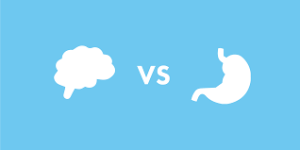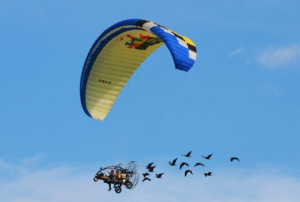 Aside from business executives, there are other professionals who use intuition and instinct, and in some cases it is about crude survival tactics. In war, life-and-death decisions must be made instantly, with little if any time for rational analysis. And what’s more impressive is that the army has discovered that the ability to act effectively from gut feelings can be improved through training.
Aside from business executives, there are other professionals who use intuition and instinct, and in some cases it is about crude survival tactics. In war, life-and-death decisions must be made instantly, with little if any time for rational analysis. And what’s more impressive is that the army has discovered that the ability to act effectively from gut feelings can be improved through training.
Time after time, the army has learned that “the speed with which the brain reads and interprets sensations like the feelings in one’s own body and emotions in the body language of others is central to avoiding imminent threats.” The U.S. military has spent billions of dollars to protect against improvised explosive devices (IEDs), investing in hardware and technology to seek and destroy these homemade roadside bombs. But experts say it is the human brain that has proven to be the most perceptive detection system. Troops often credit their experience and perception—their gut feelings—for their ability to notice and foil IED attacks.
U.S. troops are a central focus of a large effort to understand how it is that in a life-or-death situation some people’s brains can sense danger and act on it well before others can. Experience matters on the battleground. If you have seen something before, you are more likely to anticipate it the next time. Yet it is not just experience that matters. Research suggests that something else is at work too. “Small differences in how the brain processes images, how well it reads emotions and how it manages surges in stress hormones help explain why some people sense imminent danger before most others do.”
Unfortunately, for some time feelings have been perceived as having little to do with rational decision making. In fact, it has long been thought that they just get in the way of it. But according to Dr. Antonio Damasio, director of the Brain and Creativity Institute at the University of Southern California, “Now that position has reversed. We understand emotions as practical action programs that work to solve a problem, often because we’re not conscious of it. These processes are at work continually.” All scientific facts point to the evidence of an inner knowing preceding our rational mind.
Gut feelings about potential threats and opportunities are not always correct, and neuroscientists debate the conditions under which the feelings precede the conscious awareness of the clues themselves. But our instinctual skills evolved to ensure our survival, and research findings suggest that in some people those skills are exquisitely sensitive. So although the many serious researchers who say that gut feelings are not always correct do have a point, they may be missing the most important point: gut feelings have other functions that transcend the logic of reason, and to leverage their role fully we should not evaluate gut feelings on a narrow basis of whether they are right or wrong.
When we engage in solving a problem using logical skills, we follow certain rules or protocols based on past experience with a similar problem. The rules and protocols we follow are generally well defined and measurable. If we succeed in solving our problem, we typically attribute it to the efficacy of the protocols we followed. If we fail at solving our problem, we can look back and analyze the steps we took to find where our approach failed.
Conversely, when we engage in solving a problem using our instincts, we follow a path that is highly specific to our problem and ourselves at a particular moment in time. If someone asks us how we solved the problem, we may be able to recount what we did, but even a detailed recounting of what we did will not necessarily apply to a similar problem. And that’s fine, because instinctual problem solving isn’t necessarily about replication; it’s about dynamic adaptation to circumstances. The problem is that when we are successful, we (and others) may attribute our success simply to luck, even though calling on our instincts is a skill we can develop. So although we may never be able to measure the efficacy of instinct-based problem solving precisely, that doesn’t mean it is a random phenomenon. The difference between logic-based problem solving and instinct-based problem solving isn’t necessarily efficacy; the difference lies in our ability or inability to precisely identify cause and effect. And when we can’t identify cause and effect, we often feel out of control or inefficient, when in fact we may have some instinctual clues to next steps or answers.








